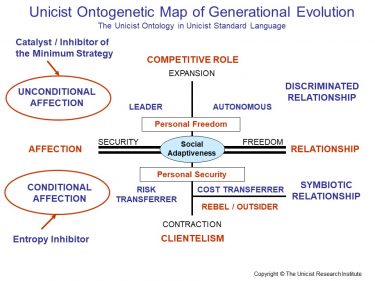Cultural changes occur along multiple generations and are catalyzed by technological changes. The discovery of fire, the wheel and gunpowder are examples of how cultural change is driven and catalyzed by technologies. These changes begin being operational and end being part of the collective intelligence of the culture.
Therefore, the introduction of structural changes in cultures requires, necessarily, having a transgenerational approach to evolution. It requires understanding the fundamentals of the behavior of the coming generations to define the framework to introduce structural changes, knowing the need for change that exists and having catalyst that allow sustaining the need for such change.
This evolutionary approach needs to be based on the responsibility of the elites to provide the necessary framework for the evolution of societies and the middle-classes sustaining the evolution to ensure that the whole society evolves towards a superior level of wellbeing.
The present generation of a culture should provide an evolutionary framework for the evolution of the following generations but is not responsible for their evolution.
There are two possible dominant evolutionary roles that are fostered in a society:
- The Adaptive role, that is driven by the need of personal freedom
- The Over-adaptive role, that is driven by the need of personal security
The adoption of one of them depends on the collective intelligence of the environment of individuals at the time of their adolescent rebellion and on their capacity to deal with the external influences. It has to be considered that the perception of the environment is subjective, which means that two individuals in the same environment, at the same time, might have an “opposite” perception.
Nevertheless, the collective intelligence, the fallacious myths of an environment and the cultural archetype strongly influence the adoption of one role or the other.
Unicist Press Committee
NOTE: The Unicist Research Institute (TURI) is a world leader in its segment. Since 1976, it has been specialized in complexity sciences applied to the research on the roots of evolution and its application to social, institutional, business and individual evolution.
